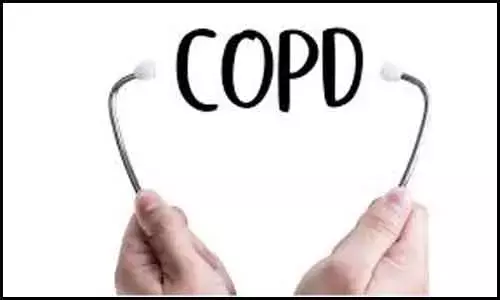- Home
- Medical news & Guidelines
- Anesthesiology
- Cardiology and CTVS
- Critical Care
- Dentistry
- Dermatology
- Diabetes and Endocrinology
- ENT
- Gastroenterology
- Medicine
- Nephrology
- Neurology
- Obstretics-Gynaecology
- Oncology
- Ophthalmology
- Orthopaedics
- Pediatrics-Neonatology
- Psychiatry
- Pulmonology
- Radiology
- Surgery
- Urology
- Laboratory Medicine
- Diet
- Nursing
- Paramedical
- Physiotherapy
- Health news
- Fact Check
- Bone Health Fact Check
- Brain Health Fact Check
- Cancer Related Fact Check
- Child Care Fact Check
- Dental and oral health fact check
- Diabetes and metabolic health fact check
- Diet and Nutrition Fact Check
- Eye and ENT Care Fact Check
- Fitness fact check
- Gut health fact check
- Heart health fact check
- Kidney health fact check
- Medical education fact check
- Men's health fact check
- Respiratory fact check
- Skin and hair care fact check
- Vaccine and Immunization fact check
- Women's health fact check
- AYUSH
- State News
- Andaman and Nicobar Islands
- Andhra Pradesh
- Arunachal Pradesh
- Assam
- Bihar
- Chandigarh
- Chattisgarh
- Dadra and Nagar Haveli
- Daman and Diu
- Delhi
- Goa
- Gujarat
- Haryana
- Himachal Pradesh
- Jammu & Kashmir
- Jharkhand
- Karnataka
- Kerala
- Ladakh
- Lakshadweep
- Madhya Pradesh
- Maharashtra
- Manipur
- Meghalaya
- Mizoram
- Nagaland
- Odisha
- Puducherry
- Punjab
- Rajasthan
- Sikkim
- Tamil Nadu
- Telangana
- Tripura
- Uttar Pradesh
- Uttrakhand
- West Bengal
- Medical Education
- Industry
Nocturnal oxygen has no effect on survival of COPD patients: NEJM

Delhi: Nocturnal oxygen neither has a positive or negative impact on survival or progression to long-term oxygen therapy in COPD patients, suggests a recent study in the New England Journal of Medicine.
Long-term oxygen therapy helps in improving survival in chronic obstructive pulmonary disease (COPD) patients with chronic severe day time hypoxemia. However, the effectiveness of oxygen therapy for the management of isolated nocturnal hypoxemia is not known. So, the researchers determined whether the administration of nocturnal oxygen for a period of 3 to 4 years would decrease mortality or the worsening of disease such that patients meet current specifications for long-term oxygen therapy, in patients with COPD having nocturnal arterial oxygen desaturation without qualifying for long-term oxygen therapy.
For the purpose, the researchers designed a double-blind, placebo-controlled, randomized trial. In which, patients with an oxygen saturation of less than 90% for at least 30% of the recording time on nocturnal oximetry were assigned to receive either nocturnal oxygen or ambient air from a sham concentrator (placebo) in a 1:1 ratio.
The primary outcome was a composite of death from any cause or a requirement for long-term oxygen therapy as defined by the Nocturnal Oxygen Therapy Trial (NOTT) criteria in the intention-to-treat population.
Recruitment had to be stopped prematurely because of recruitment and retention difficulties after 243 patients, of a projected 600, had undergone randomization at 28 centers.
The researchers found that at 3 years of follow-up, 39.0% of the patients assigned to nocturnal oxygen (48 of 123) and 42.0% of those assigned to placebo (50 of 119) met the NOTT-defined criteria for long-term oxygen therapy or had died.
"Our underpowered trial did not show evidence of an effect of nocturnal oxygen therapy on survival or progression to long-term oxygen therapy in patients with COPD with isolated nocturnal oxygen desaturation," concluded the authors. "Because enrollment in the trial was stopped before we had reached our proposed sample size, the trial was underpowered."
Dr Kamal Kant Kohli-MBBS, DTCD- a chest specialist with more than 30 years of practice and a flair for writing clinical articles, Dr Kamal Kant Kohli joined Medical Dialogues as a Chief Editor of Medical News. Besides writing articles, as an editor, he proofreads and verifies all the medical content published on Medical Dialogues including those coming from journals, studies,medical conferences,guidelines etc. Email: drkohli@medicaldialogues.in. Contact no. 011-43720751


